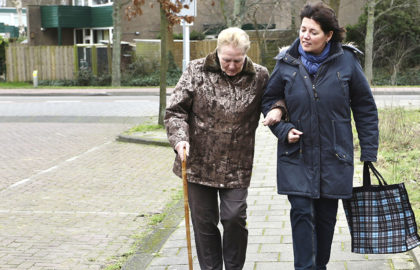As a caregiver, you have many important responsibilities, such as scheduling medical appointments, helping with personal care, and preparing meals. You are assisting someone close to you who needs support due to their age, illness, or disability. This person could be your partner, child, cousin, friend, etc.
Taking on this role can raise questions and concerns. The law provides tools to help you care for your loved one in the best way possible.
Respecting Your Loved One's Wishes
The person you care for might have already shared their wishes for situations like health problems, the inability to make decisions, or even death. Their wishes may be set out in a protection mandate, a will, or advance medical directives. Your loved one might also have a power of attorney or an assistance measure to help you manage their personal and financial affairs. You must respect their wishes.
Legal Protections for Vulnerable People
What happens if a person can no longer make decisions for themselves or manage their property? This is called “incapacity”. If the person hasn’t signed an official document, like a protection mandate, the law provides several options. These solutions might be temporary or permanent, depending on whether the person regains their ability to make decisions.
Are you the parent of a child living with a temporary or permanent incapacity? Different measures are available, depending on whether your child is a minor or an adult.
You can also read our Web Guide for Seniors for more information.
Balancing Work and Caregiving
Do you need time off work to care for a loved one? You may be entitled to 10 days of leave per year, including 2 paid days. If your loved one’s health condition is serious, you may be able to take a longer leave. Your employer cannot punish you or fire you for taking these days off.
Consenting to Health Care
Generally, everyone has the right to accept or refuse medical treatment. Doctors must provide enough information to help patients make informed decisions. But what if your loved one can’t give consent or refuses necessary care? And what happens if the person is a minor?
In some cases, healthcare providers can give treatment without consent. Knowing these rules helps you understand what to expect and how to support your loved one.
Accessing Medical Records
As a caregiver, you may need to access your loved one’s medical records. But how is their personal information protected in the healthcare system? Who can access it, and when do they need the patient’s permission?
Housing Issues
If your loved one needs to move because of health problems, there are different housing options available. The law allows them to end their lease in certain situations and provides recourses if there are problems or abuse.
Navigating the Health and Social Services Network
As a caregiver, you may need to make appointments or arrange care for your loved one. This can bring you into the health and social services system, which can be hard to navigate. These articles can point you in the right direction.
Test your knowledge!
Try our quiz!
Printable Guides and Pamphlets
Useful Resources
L’Appui proches aidants is an organization that offers support for caregivers across Quebec. It provides information, training, emotional support, and respite services for caregivers. Their website features a section for each region of Quebec. It offers key information like resources, online training, FAQs, and news.
Info-aidant (1 855 852-7784) is a free, confidential service offering support, information, and referrals for caregivers, their families, and healthcare professionals.
Programs and Assistance Measures
The Quebec government’s Health and Social Services Directory (Répertoire des ressources en santé et services sociaux) offers information on health and psychosocial issues, as well as specific programs and support measures available.
Service Canada’s Benefits Finder helps you find the federal or provincial programs and services that apply to your situation.
Financial Assistance and Tax Measures
The Société d’habitation du Québec offers a range of housing-related programs, including home adaptation.
Revenu Québec provides various tax credits and financial measures.










































